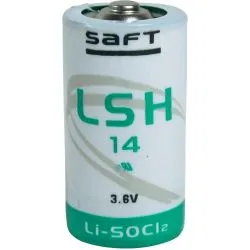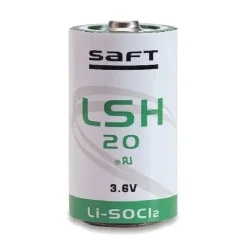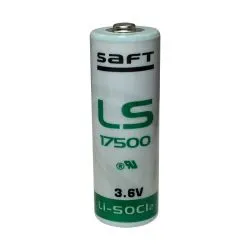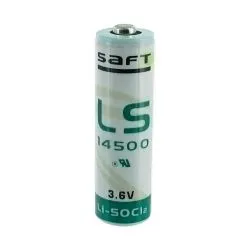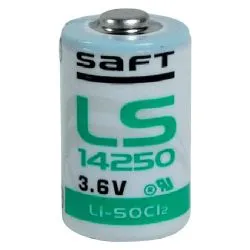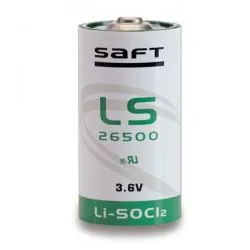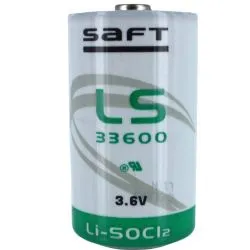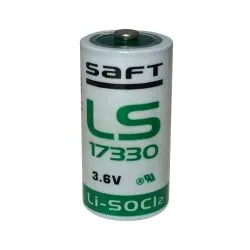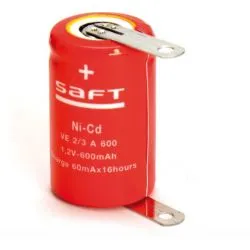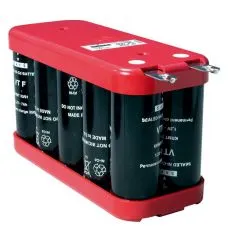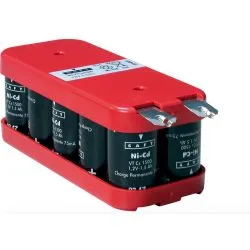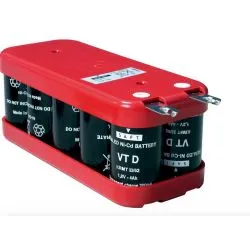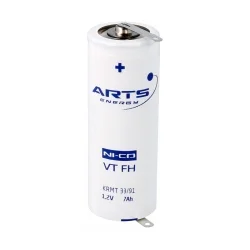SAFT

Saft, an unprecedented global battery company, has been at the forefront of delivering power to the world for more than 100 years. With its extensive experience and distinctive industry approach, Saft occupies a leadership position in meeting the needs of even the most demanding customers. Saft batteries and battery systems have a significant impact in various market sectors.
Read moreSaft has a diverse workforce of more than 4,000 employees worldwide, with operations in 19 countries, and supported by 16 production sites.
Since 2016, Saft has been a subsidiary of TotalEnergies, a leading energy company engaged in the production and marketing of energies around the world, including oil, biofuels, natural gas, green gases, renewable energy and electricity.
With more than 105,000 employees, TotalEnergies is committed to bringing energy that is increasingly affordable, cleaner, more reliable and accessible to as many people as possible.
Sustainability is at the heart of the company's operations and projects, which strives to contribute to the well-being of people in more than 130 countries.
Four Pillars of Experience that Drive Saft Operations
As Saft improves its competitiveness and expands its production capabilities, the safety of its equipment and facilities remains a primary objective. In order to meet the significant challenges in the industry and meet the needs of its partners and stakeholders, Saft has structured its operations into four business lines, generating €1 billion in revenue by 2022.
- Aerospace, Defense and Performance (ADP): ADP focuses on providing backup power and emergency systems, engine and turbine starting for aviation, communication, scientific and observation satellites, rocket launchers, satellites, space vehicles, military aircraft, armored vehicles, Formula 1, Formula E, ships, ferries, cruise ships, luxury yachts and cargo ships.
- Smart Connected Energy (CSE): CSE specializes in providing solutions for smart metering, electronic toll collection (ETC), industrial Internet of Things (IoT) applications, asset tracking, medical devices, portable military equipment, oil extraction, security systems and environmental monitoring.
- Energy Storage Systems (ESS): ESS provides energy storage solutions for grid utilities, renewable energy, and microgrids for commercial and industrial applications. Saft invests heavily in three dominant battery chemistries: nickel, primary lithium, and rechargeable lithium (lithium-ion), which cater to multiple markets.
- Industry, Mobility and Infrastructure (IMI): IMI covers emergency backup power, starting and cycling power in the oil and gas industry, power generation and distribution, backup power for the telecommunications industry, electrification of industrial vehicles, backup power for lighting, air conditioning, on-board communications and safety-critical applications for railway systems (subways, trams, trains, etc.), as well as railway signaling systems.
Revolutionizing Battery Technologies
Saft is a pioneer in the development of cutting-edge battery technologies that are revolutionizing the industry. Its nickel-based batteries stand out for their ability to withstand extreme temperatures and last longer than the competition, making them the perfect choice for backup power in industries and trains, as well as for starting aircraft engines. Saft takes great pride in supplying lightweight nickel-cadmium (Ni-Cd) batteries to approximately 80% of all large commercial aircraft.
Saft's lithium primary cells and batteries offer high-energy, high-power solutions, lasting more than 20 years. These cells and batteries are ideal for applications where replacement is complicated and expensive, such as gas, water, and electric meters, as well as Internet of Things (IoT) devices, such as environmental sensors.
Saft is also a leader in producing the most powerful lithium ion (Li-ion) cells and batteries that can perform in extreme outdoor conditions, whether it's blistering heat or freezing cold. These versatile batteries serve a number of purposes, including renewable energy storage, marine applications, satellite power, racing cars, and more.
In addition, high-energy lithium-ion batteries play a crucial role in meeting the demands of renewable energy applications that require discharge times greater than two hours. Integrated into energy storage systems (ESS), these large-scale batteries improve grid flexibility, reduce infrastructure investment, and optimize energy flows.
Pioneering the Future of Battery Technology
At Saft they recognize the need for an innovative leap in battery performance. For this reason, they are committed to investing in Research and Development (R&D), with a focus on the development of the first generation of solid-state industrial batteries. These batteries will offer a combination of low cost, high energy density, lightweight design and long life, helping to push electric vehicle and energy storage applications to unprecedented levels.
Environmental Responsibility for a Sustainable Future
One of the most important priorities for Saft is the environment. At Saft, they are committed to using resources efficiently and reducing ecological impact. From eco-design to material recycling, they're investing in a sustainable future. Saft stands out for its revolutionary lithium-ion battery technology, which offers better performance and reduces environmental impact.
Saft batteries are clean energy, and do not contribute to CO2 emissions into the atmosphere. Saft focuses on social, ethical and environmental responsibility, and requires its suppliers and customers to adhere to these same values.
They design advanced, recyclable batteries to increase energy efficiency for their customers and close the loop on the economy. They recycle spent batteries, extracting and reusing more than 75% of the materials.
In addition, they minimize the environmental impact in their manufacturing operations, exceeding national regulations: prioritizing the sustainable and ethical sourcing of minerals such as nickel, cobalt, cadmium and lithium.
Saft stands for environmental responsibility and sustainability. He invites everyone to join his commitment to protect the planet for future generations in order to build a greener and more ethical future.

